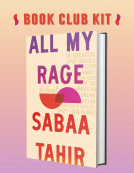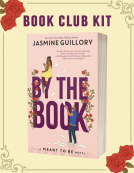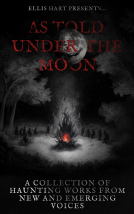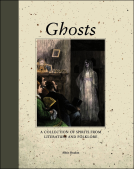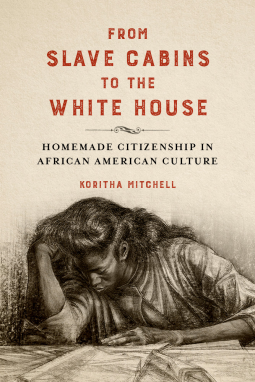
From Slave Cabins to the White House
Homemade Citizenship in African American Culture
by Koritha Mitchell
This title was previously available on NetGalley and is now archived.
Send NetGalley books directly to your Kindle or Kindle app
1
To read on a Kindle or Kindle app, please add kindle@netgalley.com as an approved email address to receive files in your Amazon account. Click here for step-by-step instructions.
2
Also find your Kindle email address within your Amazon account, and enter it here.
Pub Date 15 Oct 2020 | Archive Date 4 Sep 2020
Talking about this book? Use #FromSlaveCabinstotheWhiteHouse #NetGalley. More hashtag tips!
Description
African American mothers and wives navigating double standards
Koritha Mitchell analyzes canonical texts by and about African American women to lay bare the hostility these women face as they invest in traditional domesticity. Instead of the respectability and safety granted white homemakers, black women endure pejorative labels, racist governmental policies, attacks on their citizenship, and aggression meant to keep them in "their place."
Tracing how African Americans define and redefine success in a nation determined to deprive them of it, Mitchell plumbs the works of Frances Harper, Zora Neale Huston, Lorraine Hansberry, Toni Morrison, Michelle Obama, and others. These artists honor black homes from slavery and post-emancipation through the Civil Rights era to "post-racial" America. Mitchell follows black families asserting their citizenship in domestic settings while the larger society and culture marginalize and attack them, not because they are deviants or failures but because they meet American standards.
Powerful and provocative, From Slave Cabins to the White House illuminates the links between African American women's homemaking and citizenship in history and across literature.
Koritha Mitchell is an associate professor of English at The Ohio State University and the author of Living with Lynching: African American Lynching Plays, Performance, and Citizenship, 1890-1930.
Available Editions
| EDITION | Other Format |
| ISBN | 9780252043321 |
| PRICE | $34.95 (USD) |
| PAGES | 272 |
Links
Average rating from 28 members
Featured Reviews
From Slave Cabins to the White House by Koritha Mitchell is an intensely-written and often dogmatic book which attempts to highlight and define the many ways African American women have been disrespected as homemakers, and how that translates into an overarching disrespect for all African Americans who seek success - especially domestic success - both as they define it and as the majority culture defines it. The author uses a wide variety of cultural productions (books, plays, etc) to support this belief, ranging from Harriet Jacob's Incidents in the Life of a Slave Girl (1861) to Lorraine Hansberry's A Raisin in the Sun (1959) to Toni Morrison's Beloved (1987), and finally the public persona of former First Lady, Michelle Obama.
Seeing these texts through the filter of the author's premise was interesting, and definitely made me want to read the original documents to form my own opinion - I have a healthy suspicion when it comes to cherry-picking.
That said, the author does a great job of supporting her premise, and does it convincingly. She weaves a compelling narrative, and, with the exception of the wandering and poorly-scoped introduction, the writing is engaging and challenging.
In whole, From Slave Cabins to the White House provides a much-needed historical look at the topic of domestic success and African American women, and how that success has been denied, denigrated, withheld and ultimately claimed.
This review is based on an advance copy read.
 Reviewer 627462
Reviewer 627462
A very interesting, educational and informative read. I enjoy learning new things and this was a very good non-fic.
Thank you Netgalley for providing an arc of this book for an honest review.
I think Koritha Mitchell pulled off a pretty incredible feat here: she presented relatively cerebral, intellectual work in a digestible, narrative format that makes her point clear, her analysis easy to follow, and the stories of the texts she reviews come to life. Mitchell really embarks on a journey of theoretical analysis in order to aggregate and ultimately synthesize a body of primary texts that spans centuries. She manages to bring all these separate, mostly unrelated texts together to form a cohesive narrative while she posits that’s Black womxn have been dismissed and marginalized, even as they fulfill the historical criteria of “success” in American culture. Womxn who have dedicated their lives to the home - raising children and other tireless obligations - are shunned from mainstream American society and demoralized because of their work, all while white womxn were allowed entry into the same society for dutifully fulfilling their expected gender roles.
Mitchell talks about the Black womxn we look up to, like Michelle Obama, and explores how white commentators devalue and belittle the achievements and validity of Black womxn by stereotyping and name-calling them. One of the other things Mitchell discusses is the ways in which Black Americans have essentially formed “citizenship” to their own created communities, since white policy makers, pundits, and the general public have done everything they can to prevent Black folx from achieving “success,” no matter how traditionally “successful” they are. This is a way of maintaining oppression and attempts to marginalize this diverse community.
I’m used to academic texts but have spent most of the last decade exploring mostly fiction and some non-fiction, but Mitchell’s work feels really accessible and readable to me. Not only does she provide history and context, she also fully synthesizes it and helps us see how we got where we are and what we need to do to change it. No matter how much thinking I’ve done on the subject of equity and justice, I’ve never thought of a lot of the topics discussed within “From Slave Cabins to the White House” in such a clearly linked way. I think Mitchell has written a work that is invaluable and really hasn’t been done before, which is quite an achievement given how many remarkable works have been published on adjacent topics. I’d highly recommend this text to anyone who’s hoping to learn some about history via historical texts, analyze the images and messages we receive from the media, and how the ladders of opportunity continue to be systemically weakened for Black Americans, and particularly Black womxn.
Thank you very much to the publisher and NetGalley for an advance copy of this text. This review is wholly unbiased.
 Reviewer 570307
Reviewer 570307
Koritha Mitchell is a wonderful writer! I cannot think of a more important book to read now, to learn from now, and to recommend to others now. Thank you to NetGalley and University of Illinois Press for a copy of this book for an honest review.
It has the potential to be a very important book in the field of English. I think readers will enjoy this more if they know alot about the texts the author writes about.
 Reviewer 618436
Reviewer 618436
A very interesting and important book. I've taken lots of notes of other things to read and research after reading this, it's a book that will make you work, but it's fascinating and well worth a read.
Koritha Mitchell does an incredible job laying out a process of African American women going from one form of marginalization to another. The role that many authors played in depicting the experiences of African American experience all contribute to the way we think of our past, present, and future. With more eyes on the atrocities committed against African Americans now than in recent years, Mitchell's work comes at a great time.
As the book begins with an outline of domestic roles African Americans are expected to fill, the book lays a great groundwork in discussing another form of dehumanizing that we don't often discuss. We know slavery and servitude are awful, terrible elements to America's founding, but the nation never offered Black women reprieve from service-based roles. From politics to policing, African American women are meant to stay in one place in society forever, even long after any of us recognize it as systematic or unnatural.
In an eye-opening work, Mitchell nails the tricky element of introducing intricate concepts within a complicated system of ideas and powers at play. Equal parts history lesson and literature review of some of America's finest authors, From Slave Cabins to the White House is a must-read as we all educate ourselves on how we want to shape our country moving forward.
From Slave Cabins to the White House is a work of non-fiction that has the potential to be a timeless piece of literature. Very well researched and the literature referenced was fantastic. Kortiha Mitchell takes the reader on a journey of the enslaved black woman to the Black First Lady of the United States of America. With references to Ida B. Wells, Toni Morrison, W.E.B. DuBois and so many more black scholars; this text is a wealth of knowledge that doesn't short change you on the author's viewpoint. I can see how some reviewers might have faced a challenge being unfamiliar with some of the references but I sincerely hope that motivates one to explore those works as well. I will agree that the introduction is a bit long and somewhat repetitive but nevertheless I enjoyed this book and can not wait to add a physical copy to my library.
Thank you to NetGalley, the publisher and author for my copy in exchange for an honest review.
I had never thought about home this way before, but thanks to Koritha Mitchell, I do now! From Slave Cabins to the White House was a great telling of how Black people have come to this idea of planting roots and having a home. It was a great historical retelling of the resources that she used as well.
 Account D, Reviewer
Account D, Reviewer
i really learned a lot from this book, it was a very provocative read, it was well-researched and well written.
We should all be reading books like this that remind us of how history has progressed to get us where we are now. This is a highly structured book but I still enjoyed reading it and took plenty of notes on what I was learning. Highly recommend this one!
 Katie N, Librarian
Katie N, Librarian
This is a well-researched look at the history of African Americans, especially African American women, throughout this country’s history. I appreciated the immediate identification of the treatment of Michelle Obama while in office and how the underlying prejudice promoted the treatment of one of the ladies in the highest office in the country. This is a must-have for any American History collection.
 Reviewer 98309
Reviewer 98309
I found From Slave Cabins to the White House: Homemade Citizenship in African American Culture to be an interesting read. I believe it is a must read. Five stars.
Fantastic read! This book was very well researched and the literature referenced is fantastic. I love how the author references other texts and the actual stories of enslaved women to give us a glimpse into their lives from a unique perspective. Highly recommended.
From Slave Cabins to the White House encompasses different facets of the African American experience from a unique perspective. Highly recommend. Mitchell’s other work, Living with Lynching is also a must read.
An amazing read - to see the the black culture thrive and shift over 400 years was great to read about. Depressing at movements but I applaud our resiliency.
3.5-4 stars
Thanks to NetGalley for an e-arc of this in exchange for and honest review.
This is a book that looks at the way the black community, particularly black women, have made a place for themselves in a society that actively attacks them and make them feel unwanted in the society. And it looks at the ways society then reacts to the ways black women have made a place for themselves and made their life a success. Dr. Mitchell clearly shows that black women do not just react to societies limitations. Rather, it's always the racist society that reacts to their self made success, where every time black women find some way to thrive, even within a society as limiting as America, they are attacked. She does this analysis largely through the lens of literary works through history. I found that intersection of history and literature a really fascinating study. There were a lot of works that I was not familiar with, and that made it difficult to follow sometimes. Nevertheless, I thought it was an excellent way of making her points. That is especially true when she is referring to works I have read, like OEB and Toni Morrison. My biggest complaint about this book was that it felt a bit too academic or esoteric for me. That is a personal issue more than the book itself, and I think it connects back to the larger discussion around the works I wasn't as familiar with. However, it is still a great book worth reading.
My youtube review: https://youtu.be/-FkGW9RaWXg?t=463
If you are unsure, I recommend at least checking out this interview the author had back in 2020 about the book and the topics she explores.
https://youtu.be/R_qkBy5jmuw
As a black woman, I found "From Slave Cabins to the White House: Homemade Citizenship in African American Culture" by Koritha Mitchell to be a fascinating and thought-provoking book that delves into the ways in which African American cultural expression has shaped American democracy. Mitchell's central argument that cultural expression is a form of "homemade citizenship" is compelling, and her use of literature, film, and music to support her analysis is impressive.
One of the things I appreciated about Mitchell's book was her discussion of the ways in which African American cultural expression has been used as a form of resistance throughout history. She draws connections between historical moments of resistance, such as slave rebellions and the civil rights movement, and contemporary movements like Black Lives Matter. This perspective highlights the ways in which African American culture has been a driving force in the struggle for social justice in the United States.
Additionally, Mitchell's analyses of works by writers such as Frederick Douglass, Zora Neale Hurston, and Toni Morrison are insightful and nuanced. Her discussion of Hurston's "Their Eyes Were Watching God," for example, is particularly impressive in the way that she links the novel's exploration of love, self-discovery, and community to larger issues of African American citizenship. Similarly, her analysis of Morrison's "Beloved" highlights the ways in which the novel's exploration of trauma, memory, and history speaks to larger issues of African American identity and belonging.
However, I did find some aspects of the book to be problematic. While Mitchell does touch on issues of racism, I felt that her analysis could have been more critical in some places. For example, her discussion of "The Birth of a Nation" struck me as somewhat uncritical, given the film's racist content and legacy. I would have liked to see more attention paid to the ways in which the film contributed to the perpetuation of racist stereotypes and attitudes.
Additionally, while Mitchell's focus on cultural expression is valuable, I would have liked to see more attention paid to the ways in which political and economic structures have constrained African American citizenship. While cultural expression has undoubtedly been a powerful form of resistance, it is important to acknowledge the ways in which political and economic systems have perpetuated inequality and discrimination.
Despite these criticisms, I found "From Slave Cabins to the White House" to be a valuable contribution to the study of African American culture and history. Mitchell's writing is engaging and accessible, and her arguments are well-supported by examples from literature, film, and music. The connections she draws between historical moments of resistance and contemporary movements like Black Lives Matter are particularly compelling, and her argument that cultural expression is a form of "homemade citizenship" is a powerful one.
Overall, I would highly recommend #FromSlaveCabinstotheWhiteHouse to anyone interested in African American culture and history. While the book is not without its flaws, it is an engaging and valuable read that sheds light on important aspects of American democracy and citizenship. I would give it a 4.5 out of 5 stars, with the caveat that some of the analysis could benefit from a more critical perspective on issues of racism and political economy.
I would like to thank #NetGalley for sending me an advanced copy #FromSlaveCabinstotheWhiteHouse in exchange for my own honest review. This book was due for release on October 15, 2020
Readers who liked this book also liked:
We Are Bookish
Multicultural Interest, OwnVoices, Teens & YA
We Are Bookish
General Fiction (Adult), Romance, Women's Fiction
We Are Bookish
LGBTQIA, Romance, Sci Fi & Fantasy

